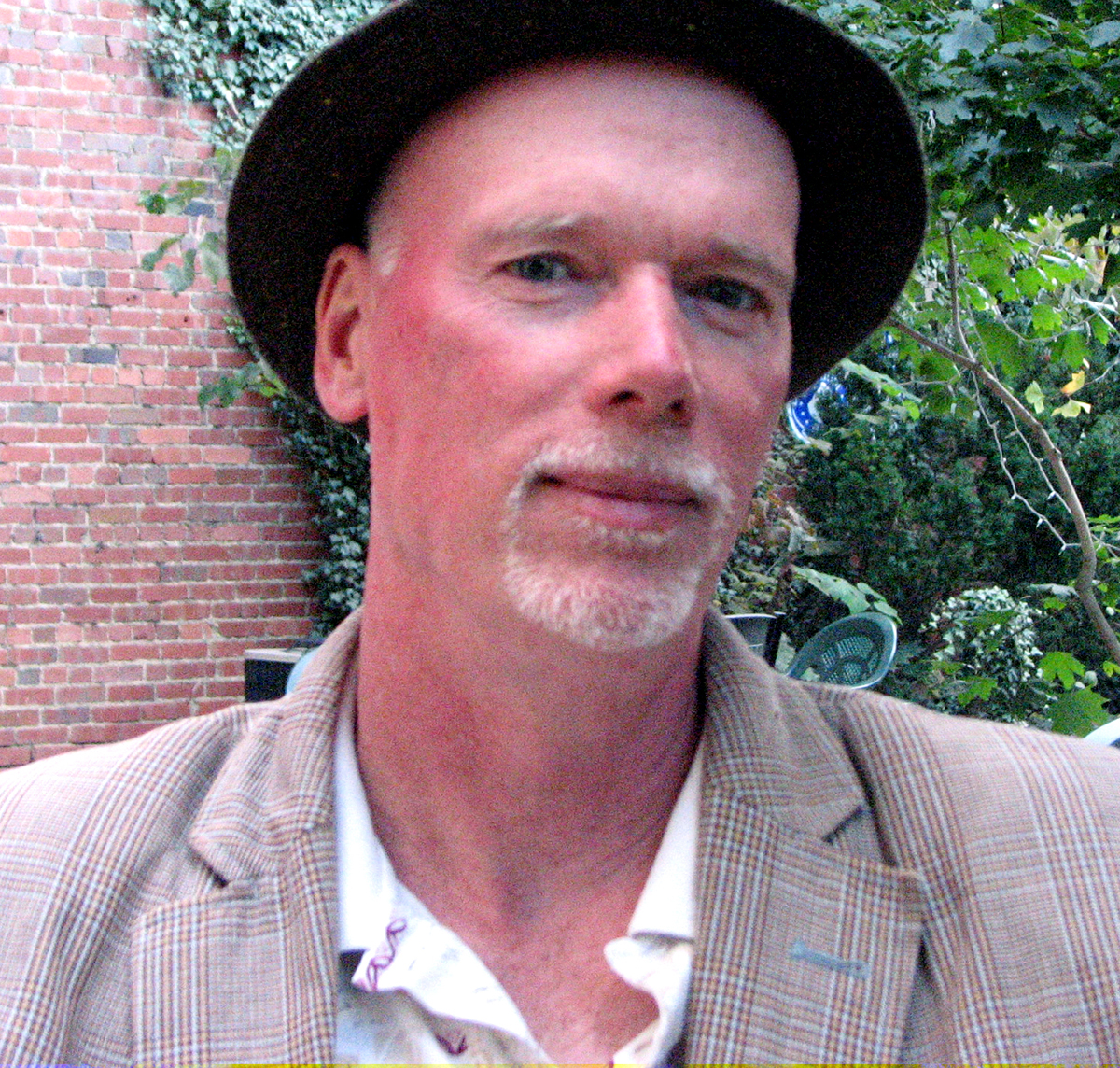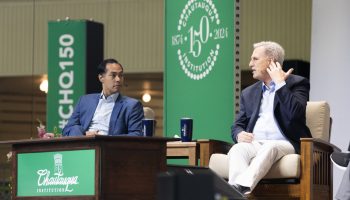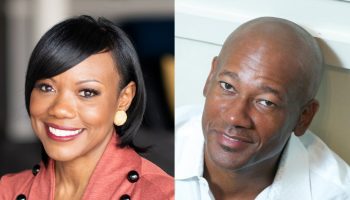The age of the average Chautauquan at a Brown Bag lecture is probably on the older side, but poet Philip Brady plans to start his lecture with something more elementary: the recitation of a children’s poem.
“I recite the poem, which is 14 lines, one time,” Brady said. “And everyone learns it by heart after one hearing.”
Brady is the poet-in-residence for Week Four at the Chautauqua Writers’ Center. His Brown Bag, called “Life Before the Alphabet: Learning to Write By Heart” will be at 12:15 p.m. Tuesday on the front porch of the Literary Arts Center at Alumni Hall.
Reciting a children’s poem is an activity Brady said he’s done with “third-graders, drunks in a bar, hedge fund managers and sailors on a ship.” People tend to be skeptical about being able to learn a poem by heart after one reading, but Brady likes to show them how it happens.

Brady is a poet, memoirist and essayist, and he teaches at Youngstown State University. His most recent book is To Banquet with the Ethiopians: A Memoir of Life Before the Alphabet, which investigates questions of language and poetry. It’s a topic in which Brady has a deep interest.
“Poetry is the only art form that I know of that has no native means of apprehension,” Brady said. “It exists in the air, in speech and on the page. But it isn’t native to any of those locations. When we hear a poem, we wish we could see it on the page. When we see a poem, we try to imagine it being heard.”
It’s one reason he enjoys poetry readings, Brady said, because readers can later “hear an echo” of the poet’s voice when they read the poem on the page.
Brady said people’s complicated relationship with poetry has its roots in childhood development. Between the ages of 5 and 6, he said, people tend to transition from seeing time in a “mythical” way to a “measured” way.
“We stop believing in Santa Claus and the Easter Bunny, and time begins to flatten out,” Brady said. “And it usually happens when we learn to read, when we learn about history — those things beyond our apprehension as children.”
It’s not just a transition that children go through, either, Brady said. Culture has shifted over time, too. He said this can be seen by thinking about the world 3,000 years ago, when the oral storytelling tradition thrived in the absence of true, written literature.
“People lived in a world much closer to the world we think of as ‘myth,’ ” Brady said.
Brady hopes to revive this tradition by having his audience recite poetry with him. He said it reawakens people’s “aural imagination.”
“Poems are not just meant to be read and understood as units of meaning,” Brady said. “They’re meant to, by their sound patterns, reconfigure our minds.”
Brady said he hopes the activity will help his audience walk away with an awareness of the poetry that’s “incipient in all environments,” not just with a history lesson.
“It’s not a historical lecture; it’s really hands on,” Brady said. “I ask people to awaken their memory, to share in saying a poem together. It’s a lot of fun.”




